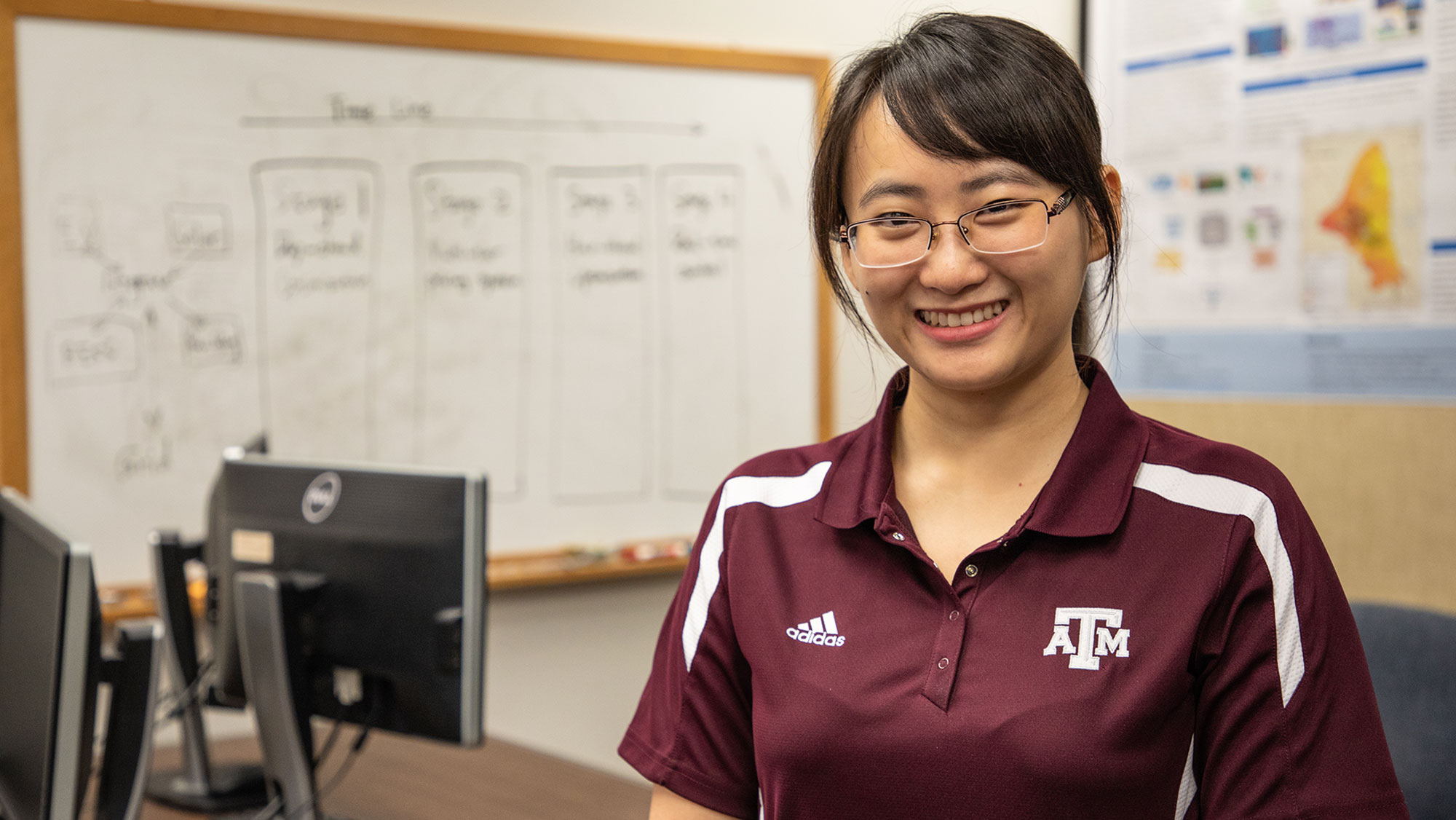
Without electricity that the power grid supplies, we wouldn’t be able to work in the office or enjoy the comfort of our homes. And in many ways, this power is distributed and ultimately depleted with nothing in return.
Qin Yan, a doctoral student in the Department of Electrical and Computer Engineering at Texas A&M University, is studying the impact of electric vehicles on the power grid in hopes of bringing support back to the grid in a new way.
Electric vehicles need
Yan is also taking renewable energy resources such as solar generation into consideration for this study and examining how to coordinate each element to better support the power grid. As part of her research, Yan proposed an integrated bidirectional electric vehicle charging station that includes the charging station for the electric vehicles, solar generation and battery storage in a commercial building. She also developed an optimization algorithm to minimize the operational cost.
“We are integrating these elements – electric vehicles, solar generation and also battery storage,” Yan said.
This symbiotic relationship would bring even more reliability to the grid, enhancing the support it could give in other areas.
I feel this research area of electric vehicles and solar generation is very promising and may be realized in the near future.
“I feel this research area of electric vehicles and solar generation is very promising and may be realized in the near future,” Yan said. “With the growing development of distributed generation, the traditional power system is facing new challenges, and this study can help mitigate such impact on the current power system.”
Yan works alongside Dr. Mladen Kezunovic, director of the Smart Grid Center at Texas A&M.
“Electrical vehicles are coming,” said Kezunovic, Eugene E. Webb and Regents Professor. "They are not deployed as widely as we expected them to be, but in the